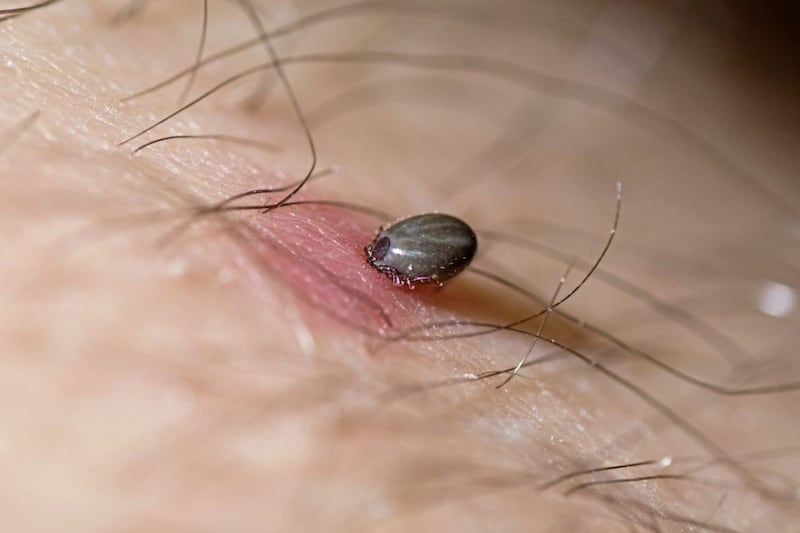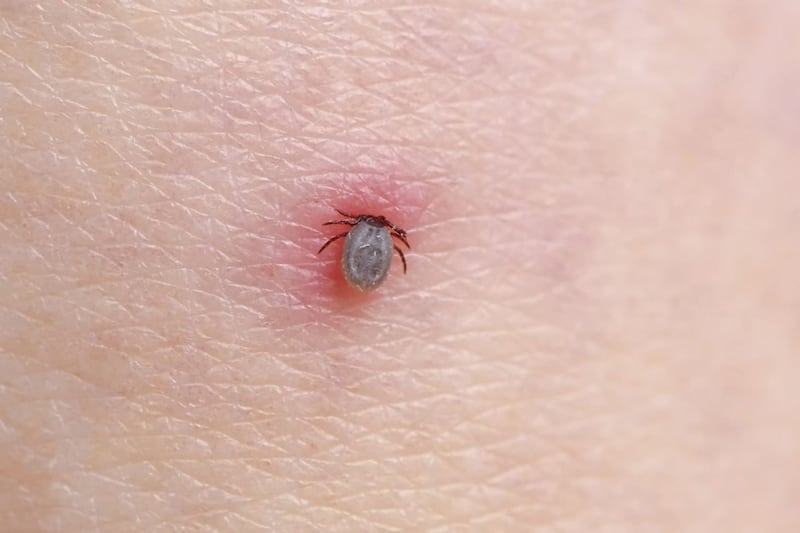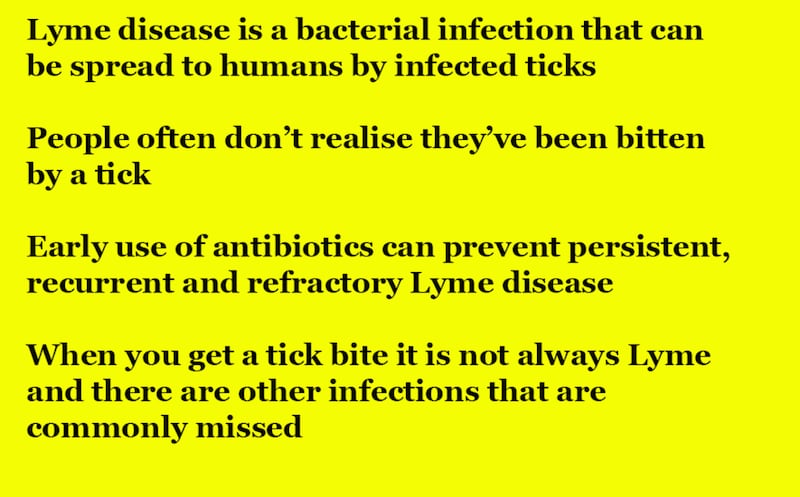WHEN Belfast retired teacher Henry McNulty found himself having to quickly answer a call of nature, he dipped behind a hedge and thought nothing more about it. That was 26 years ago and today he looks back on that fateful moment and wishes he had chosen another hedge.
For Henry, a widower turning 70 this October, was bitten by an infected tick near Loughanure, Co Donegal, and has been suffering from the debilitating effects of chronic Lyme disease ever since.
But the chronic form of the illness – caused by various tick-borne pathogens and, in the acute phase, often causing a characteristic red rash – goes unrecognised by the medical profession in Northern Ireland; a stance that left the west Belfast grandfather battling for a diagnosis for two decades.
Mystery health problems including chronic pain, joint stiffness and crippling fatigue were put down to a "convenient, catch-all virus" or else dismissed as "psychosomatic" symptoms.
It was frustrating, to say the least, but he battled on, certain that his baffling ailments – which had led to early retirement as a science teacher at Christian Brothers School in west Belfast – could be traced back to that unlucky hedge in Co Donegal.
"Doctors today don't believe embedded Lyme exists and only accept the acute form," Henry says. "I know I was bitten because I saw the tick and I saw the blood, but I didn't go to the doctor. It was in 1992 and I had been on holiday, staying with friends while visiting my daughter who had been attending an Irish summer college in Loughanure.
"The day after the bite, my arm so was painful that I couldn't change gears in my car and I saw a rash around my elbow. I became suddenly ill and was vomiting, but I was quite fit – I was a karate instructor at the time – so I brushed it off, thinking my immune system would fight whatever it was that I had picked up.
"I hadn't heard of Lyme disease back then, so had no idea that a tick bite from an infected insect would lead to years of misery, early retirement and, worst of all, people thinking it was 'all my head'."
Now, in a bid to highlight the seriousness of what is often considered nothing more than 'summer flu', Henry – whose painting exhibition, 'Idir Chanbhas is Cloch' (Between Canvas and Stone) ran recently at the Culturlann McAdam O'Fiach Irish language arts centre on the Falls Road – has spoken out about the importance of a prompt diagnosis and appropriate treatment.
He has been helped in this regard by an expert in Dublin, Dr Jack Lambert, professor of Medicine and Infectious Diseases at the Mater Hospital and UCD School of Medicine, who is treating growing numbers of desperate patients at his busy clinic.
"After that visit to Donegal, my symptoms got worse a few weeks into the new school term in September and I did go to the doctor," Henry recalls. "I was breaking out in a sweat just by doing some light gardening and had no idea why.
"I told the GP I had had a bite, but he said it was just coincidence and I was sent home with painkillers and some gel for my knees where most of the joint pain was concentrated."

Over the months and years that followed, Henry, who has just finished writing his fifth book about the Irish language, saw his health deteriorate at an alarming rate, necessitating numerous trips to GP surgeries, hospitals and, eventually, through the doors of the infectious diseases unit at the Royal Victoria Hospital, Belfast.
A potential breakthrough came in 1998 when his worried daughters came rushing down the stairs of his home to tell him they thought he had "something called Lyme disease".
"They had been on the computer trying to solve the mystery of what was wrong with me and the symptoms all matched up," Henry explains. "It was the first time I had a name for something, but when I was referred to the hospital and told them I thought I had Lyme disease, it was pretty much dismissed.
"I begged for a test anyway, but after a lot of waiting and running around after results by my late wife, Mairead, I was told I didn't have it.
"At this stage I was sleeping 22 hours a day, my family was getting seriously concerned and yet I was still being told that my symptoms were psychosomatic. I was even asked to see a psychiatrist when what I needed was effective physical medical intervention."
The epiphany he had been waiting for came just four years ago when Henry was put in touch with Dr Lambert in Dublin who held an entirely different view of chronic Lyme, which, he believes, if left untreated, can lead to serious neurological conditions, heart problems and arthritis.
"I can't tell you how relieved I was to finally have someone believe me," Henry says. "Dr Lambert had sent off a sample to specialist research laboratories in Germany and the results came back positive – I was suffering from Lyme disease.
"I was prescribed a certain type of antibiotic and the next day I felt more alert than I had in years. I'm still taking a type of malaria drug and although I am still nowhere near better, at least I'm now on the right path. So much damage has been done to my immune system in the intervening years, but Dr Lambert still hopes to cure me."
Studies of Lyme disease in the Republic show that 10 per cent of the population of around 4.7 million have been exposed to the disease but due to the Health Protection Surveillance centre in Dublin reporting only cases of 'neuroborreliosis' (a neurological manifestation of Lyme disease caused by a systemic infection of spirochetes bacteria) just 10-20 cases are documented each year.
"We say it is a rare disease, but I don't think so," Dr Lambert says. "We are missing cases, as the tests are not perfect. The tests are for borrelia burgdorferi, the American strain – and we're not Americans.
"NICE guidelines say there is no such thing as ‘chronic Lyme,’ but research studies done by acknowledged experts say there are chronic Lyme symptoms and patients end up often diagnosed by neurologists and rheumatologists with other conditions.
"If you catch the bite before dissemination, it is probably true that a short course of antibiotics will provide a cure, but if you catch it late, treatment is more difficult."

The problem, Dr Lambert says, is that ticks, common in Ireland, "an agricultural country", spread more than just Lyme – there are co-infections – while the Lyme antibody test does not pick up all strains of Lyme.
"If someone gets 'summer flu', they are told they don't have Lyme as the NHS test is negative, but a negative test means you can still have it," he stresses.
"The current approved testing misses many sick patients who are then told they should just ‘live with it’. Unfortunately, most people don't know they have had a tick bite and half of people infected do not even present with a rash.
"Currently, there is no definitive test for Lyme disease, so laboratory results should not be used to exclude an individual from treatment.
"Tick-borne infections are quite common, but, for some reason, denied, and we go on denying patients appropriate care and treatment. Henry is a perfect example."
Lyme disease




